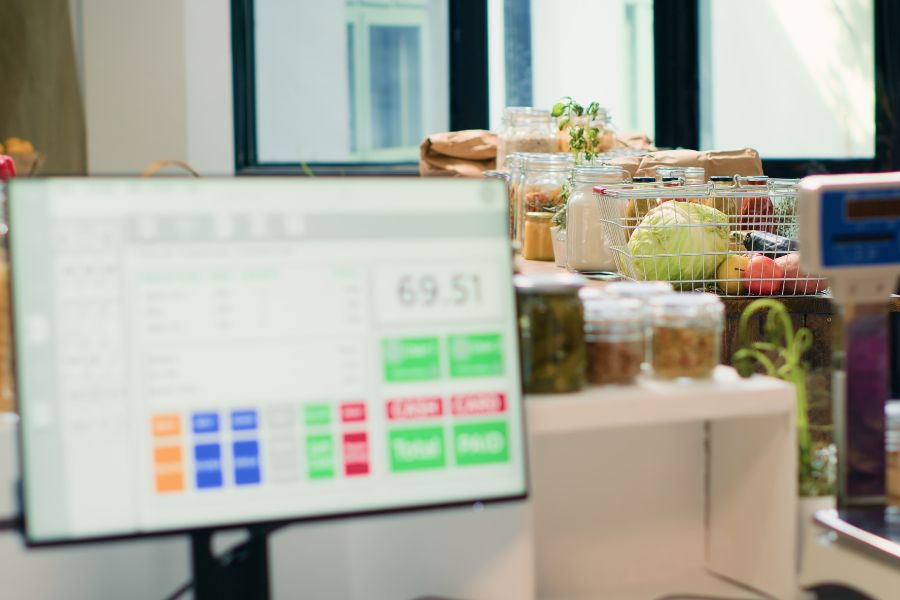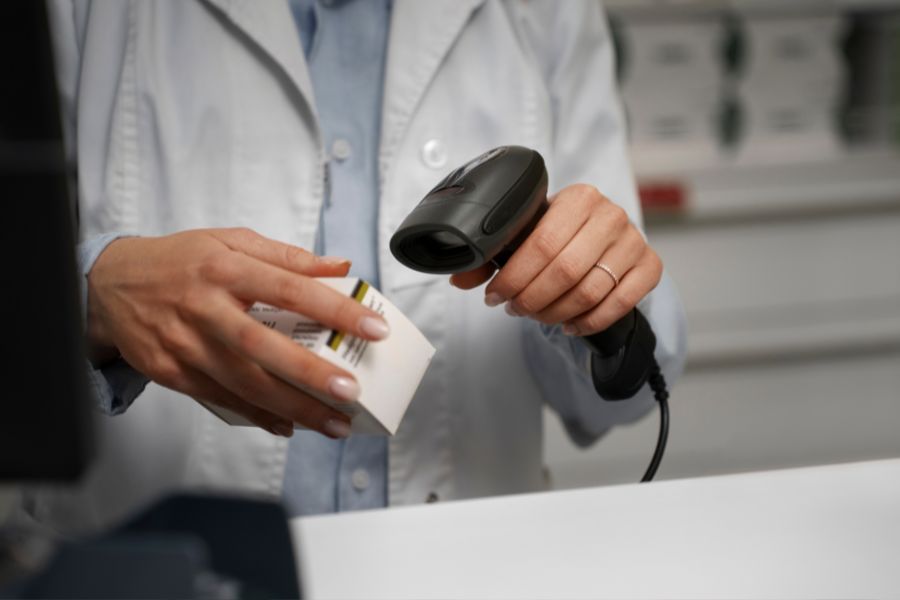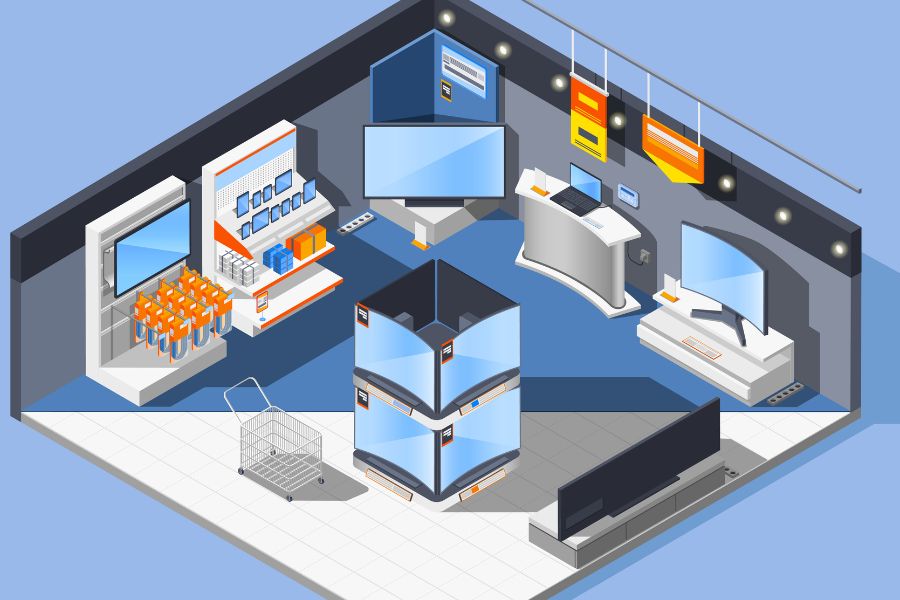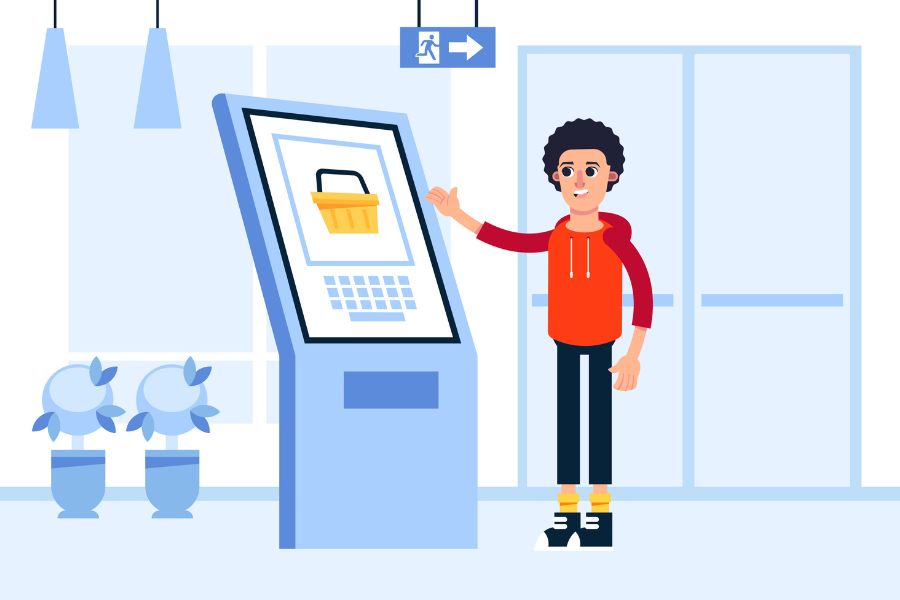Pop up shops are powerful tools for businesses looking to expand their reach, test new markets, or create exclusive shopping experiences. However, these temporary stores can struggle with transaction processing, inventory management, and customer engagement without the right POS system. The best POS system for pop up shop must offer mobility, offline functionality, easy integration, and seamless payment processing.
In this blog, we explore the 5 best POS systems in 2025 for pop-up shops in the United States, analyzing their features, pricing, and best use cases.
Highlights:
- The right POS system is the key to seamless transactions, real-time inventory tracking, and customer engagement, making pop-up shops more efficient and profitable.
- Top picks for 2025 include ConnectPOS, Shopify POS, Clover POS, Toast POS, and Lightspeed POS, each offering unique advantages like mobility, offline functionality, and e-commerce integration.
Role of a POS System in Running a Successful Pop Up Shop
In contrast to traditional brick-and-mortar stores, pop up shops operate for a limited time, often in high-traffic areas or events. This temporary nature demands a POS system that is:
- Portable and Easy to Set Up: Cloud-based systems that operate on mobile devices like tablets or smartphones make it easy to get started in minutes without complex setup.
- Internet-Independent: Many pop ups operate in areas with unreliable internet. A POS that continues processing transactions offline prevents missed sales and syncs data once you’re back online.
- Scalable and Flexible: Regardless if you’re launching a one-day booth or a multi-week campaign across several locations, a flexible POS scales with your needs.
- Streamlining Transactions and Payments: The ability to accept card payments, digital wallets, and cash improves customer experience and reduces checkout delays.
- Real-Time Inventory Management: With limited space and stock, it’s important to know exactly what’s available. A POS that tracks inventory live helps prevent stockouts and over-ordering.
- Generating Data-Driven Insights: Access to live data on product performance, revenue, and traffic lets you make smarter decisions, both during and after the event.
- Simplifying Staff Management: Temporary teams need structure. A POS with time tracking and role-based access keeps operations organized and reduces training time.
- CRM and Loyalty Features: Collect customer info and purchase history to personalize promotions, build stronger connections, and encourage return visits.
Criteria for Selecting the Best POS System for Pop Up Shop
Before we look for the best POS system for pop up shop, it’s worth understanding which features support the unique demands of short-term retail setups. These systems need to combine portability, flexibility, and reliability without adding complexity or long-term commitments.
- Portability and Mobility: The best POS system for pop up shop should be lightweight, compact, and easy to transport. Look for a cloud-based POS system that runs on mobile devices like tablets or smartphones. Wireless connectivity and Bluetooth-enabled accessories (such as receipt printers and barcode scanners) can further enhance mobility.
- Offline Functionality: A reliable offline mode keeps your shop running even during Wi-Fi outages. Once you’re back online, all sales and inventory data should sync automatically without manual adjustments.
- Payment Flexibility: Support for EMV cards, contactless payments (Apple Pay, Google Pay), QR code payments, and Buy Now, Pay Later (BNPL) services gives customers more ways to pay, and fewer reasons to abandon a purchase. Cash support remains useful in street markets and festivals.
- Inventory Visibility: Real-time stock tracking helps avoid running out of top-selling items. For retailers with multiple pop-up locations or a connected online store, inventory should update across all channels instantly. Barcode scanning can also speed up checkout and reduce human error.
- Customer Relationship Management (CRM): A POS with built-in CRM allows you to capture customer data, track purchase history, and segment contacts for future promotions. Integrated loyalty programs make it easy to reward purchases on the spot and encourage follow-ups.
- Integration with E-commerce: For retailers selling online, syncing with platforms like Shopify, WooCommerce, or BigCommerce keeps product data, inventory, and orders aligned. This creates a smoother customer journey between your online and physical store.
- Transparent Pricing: Since pop ups are temporary, look for POS providers that offer month-to-month or usage-based pricing instead of long-term contracts. Also consider hardware flexibility, being able to use your own tablet or card reader can reduce upfront costs.
- Quick Onboarding and Support: You may not have days to set up or troubleshoot. A POS that offers immediate onboarding, simple interfaces, and responsive support can make a big difference when time is limited.
5 Best POS Systems for Pop Up Shops in the US 2025
We’ll highlight five best POS systems for pop up shops in the US for 2025. Each one brings a unique mix of features suited to different retail setups.
ConnectPOS
A pop-up shop needs a versatile and adaptable POS system that works on multiple devices. ConnectPOS delivers a full-featured solution that combines mobility, real-time insights, and seamless integration to support both front-end sales and back-end operations.
Key Features
- Operates on multiple devices, including tablets, smartphones, laptops, and even POS terminals.
- Real-time synchronization across channels ensures consistent inventory, pricing, and customer data between online and offline stores.
- Supports a wide range of payment options, including EMV cards, digital wallets, QR code payments, and Buy Now Pay Later (BNPL) services.
- Offline mode keeps transactions running smoothly even during network interruptions, with automatic data sync once reconnected.
- Seamlessly integrates with Shopify, WooCommerce, Magento, BigCommerce, and other leading eCommerce platforms.
- Built-in barcode scanning and product lookup features speed up checkout and simplify stock management.
- Role-based staff permissions and time tracking improve accountability and security.
- CRM features capture customer data, purchase history, and preferences.
- Mobile POS functionality empowers staff to assist customers and process sales anywhere on the floor or at pop up events.
- Receipt customization, branded interface options, and multi-language support add flexibility for diverse retail environments.
Works for: Retailers seek a fully integrated POS system that connects physical and online stores efficiently.
Shopify POS: Seamless E-commerce and Retail Integration
For pop-up shops that extend their presence from an online store, Shopify POS provides seamless integration with Shopify’s e-commerce platform, ensuring accurate inventory tracking and easy checkout processes across all sales channels.
Key Features
- Real-time synchronization with Shopify’s online store for accurate inventory tracking.
- Accepts various payment methods, including credit/debit cards and BNPL services.
- Allows customization of discounts, promotions, and gift cards to attract customers.
- Provides detailed analytics for performance tracking.
- Automatically updates stock levels across online and in-store sales.
Works for: Brands that want a seamless connection between their online store and pop up shop while managing inventory efficiently.
Clover POS: Customizable and User-Friendly
Clover POS offers a flexible system with a variety of hardware and software options. Businesses can customize features based on their specific needs, making it a good choice for pop-up retailers looking for adaptability.
Key Features
- A range of hardware options, from countertop stations to handheld devices.
- Supports third-party integrations for expanded functionality.
- Accepts all major payment methods, including mobile wallets and QR codes.
- User-friendly interface for quick setup and operation.
- Includes customer engagement tools like loyalty programs and email marketing.
Works for: Businesses that need a customizable POS system with a user-friendly interface and flexible features.
Toast POS: The Ideal POS for Food and Beverage Pop-Ups
Toast POS is one of the best POS systems for pop up shop designed for food and beverage businesses. It offers a robust system for pop-up restaurants, food trucks, and mobile cafes, with tools that make order management and payments seamless.
Key Features
- A touchscreen POS system that speeds up order processing.
- Menu customization and real-time updates for seasonal offerings.
- Integrated online ordering and delivery options.
- Tools for split bill payments and tip management.
- Offline mode to ensure uninterrupted transactions.
Works for: Food and beverage pop ups that need a POS system with built-in order management and restaurant-specific features.
Lightspeed POS: Advanced Features for High-Volume Sales
Lightspeed POS is built for businesses handling large transaction volumes. It provides detailed analytics, inventory tracking, and sales reporting, making it ideal for retailers managing multiple locations.
Key Features
- Advanced inventory tracking with automatic updates.
- Customizable reporting tools for detailed sales insights.
- Integrates with e-commerce platforms for smooth omnichannel selling.
- Accepts multiple payment options, including mobile wallets and BNPL services.
- Cloud-based system with offline functionality.
Works for: Retailers managing high sales volumes who need advanced analytics and inventory tracking.
Steps to Find the Right POS System for Pop Up Shop
When selecting a POS system for your pop-up shop, consider the following steps:
Step 1: Identify Your Business Needs
- Match to your product or service model: Identify what you’re selling, retail goods, food and beverages, or services. Some POS systems are tailored for specific industries and include features like menu modifiers, appointment scheduling, or multi-location inventory.
- Prioritize key features: List the tools that matter most to your operation. Sales tracking, inventory management, CRM, loyalty programs, and reporting dashboards are common must-haves for modern pop-ups.
- Map out usage scenarios: Think about how and when you’ll use the POS. Will you need multiple users at peak times? Are you expecting high sales volume in short bursts? These factors influence which features and performance levels you should focus on.
Step 2: Check Payment and Hardware Compatibility
The best POS system for pop up shop needs:
- Payment versatility: Look for a system that supports card payments (chip, swipe, contactless), mobile wallets like Apple Pay or Google Pay, QR payments, and cash. Offering more payment options means fewer missed sales.
- Hardware compatibility: Confirm that the POS works with the devices you plan to use – tablets, smartphones, or dedicated terminals. Check if it connects smoothly with accessories like receipt printers and barcode scanners.
- Ease of setup: If you’re moving between locations, choose hardware that assembles quickly and runs reliably without complex installations. Portable card readers and wireless printers help reduce setup time and cable clutter.
Step 3: Prioritize Offline Access and Portability
- Offline Functionality: Since many pop-ups operate in areas with unstable networks, select a POS that continues processing transactions when offline and syncs data automatically once you’re reconnected.
- Portability: The system should be lightweight, easy to pack, and quick to deploy. Battery life matters for mobile devices, especially during long events or outdoor activations with limited power outlets.
Step 4: Check for Seamless E-Commerce Integration
- Sync between channels: If you also sell online, choose a POS that connects with your e-commerce platform to keep inventory and sales data aligned. Systems like ConnectPOS and Shopify POS support real-time syncing, which reduces manual updates and improves accuracy.
- Unified data view: Other than syncing inventory, some systems provide a combined dashboard for online and offline sales, giving you a clearer view of performance across all channels.
Step 5: Review Pricing Structure and Hidden Costs
- Transparent pricing: Compare subscription fees, processing rates, and hardware costs. Look closely at what’s included—some providers charge extra for support, updates, or advanced features.
- Short-term plans: Since pop-ups are temporary, monthly or pay-as-you-go plans are often more practical than long-term contracts.
- Total operating cost: Don’t just look at the upfront price. Consider recurring fees for transactions, hardware maintenance, add-ons, and any integrations you may need to connect your tech stack over time.
FAQs: Best POS System for Pop Up Shop
- Can I Use a Mobile POS System for My Pop Up Shop?
Yes, a mobile POS system is a great choice for pop-up shops, offering portability, easy setup, and multiple payment options.
- Do I Need a Special License to Use a POS System for a Pop Up Shop?
No special license is required, but you may need local permits for your pop-up shop and compliance with sales tax regulations.
- How Much Does a Good POS System Cost for a Pop Up Shop?
Costs vary; subscription fees range from $29 to $100+ monthly, with transaction fees and hardware expenses depending on the provider.
Conclusion
In sum, selecting the best POS system for your pop up shop in 2025 helps foster efficient transactions, maintains real-time inventory management, and enhances overall customer engagement. Your business can choose from the options that include ConnectPOS, Shopify POS, Clover POS, Toast POS, and Lightspeed POS, each offering distinct advantages tailored to diverse business needs.
ConnectPOS particularly excels with its exceptional mobility, offline functionality, and seamless integration with e-commerce platforms, making it the go-to choice for businesses seeking a comprehensive solution. Contact us today and explore how ConnectPOS can help!
ConnectPOS is a all-in-one point of sale solution tailored to meet your eCommerce POS needs, streamline business operations, boost sales, and enhance customer experience in diverse industries. We offer custom POS with features, pricing, and plans to suit your unique business requirements.




